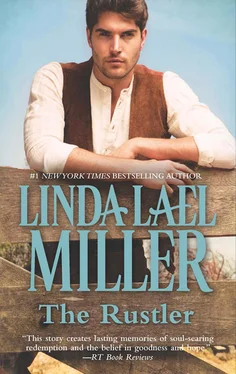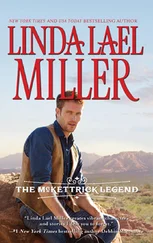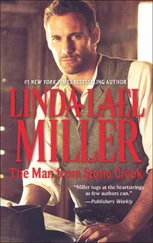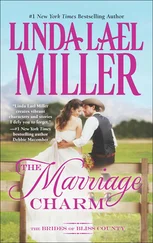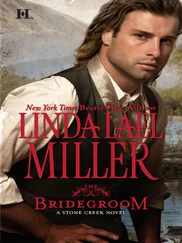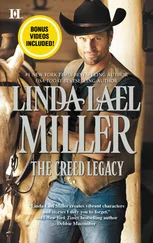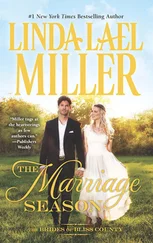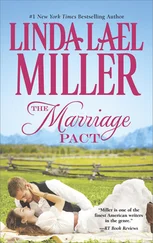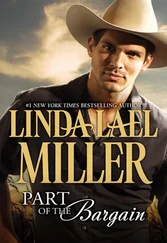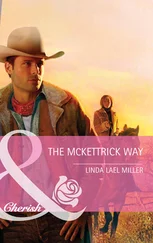1 ...7 8 9 11 12 13 ...16 He could lie, of course. Say he’d never crossed paths with the gang, let alone helped them rustle cattle. His word against Billy’s. Sam might even believe him—but Rowdy wouldn’t. No, Rowdy’d see right through to the truth.
Inside the barn, Wyatt tossed his few belongings up into the low-hanging loft, and the sweet smell of fresh hay stirred, along with a shower of golden dust.
Reb nickered a greeting, and Wyatt crossed to the stall to stroke the animal’s long face. “You like it here, don’t you, boy?” he asked. “Time you led the easy life.”
Wyatt added hay to Reb’s feeding trough, then to those of the other two horses. He carried water in from the well to fill their troughs.
Rowdy’s spare horse was a buckskin gelding named Sugarfoot. He looked capable of covering a lot of ground—he and Sugarfoot could be a long way from Stone Creek in a short time. Maybe he’d leave a note for Rowdy, on the kitchen table, along with the badge, saying he was sorry and promising to send payment for the horse as soon as he got work.
He closed his eyes against the emotions that rose up in him then—shame, frustration, regret—and a hopeless yearning for the kind of life his younger brother had. Rowdy would understand; he’d been on the run himself. But if he found out about Wyatt’s brief association with Billy’s gang, he might come after him, not as a brother, but as a lawman.
And there was more.
He’d never see Sarah again, or poor old Reb.
He sighed, shoved a hand through his hair.
After a few moments, he made for the house. He’d been kidding himself, thinking he could stop running and put down some roots. Now, he was going to have to cut himself loose, and it would hurt—a lot.
Entering by the kitchen door, Wyatt noticed the envelope propped against the kerosene lamp in the center of the table right away. Took it into his hands.
Rowdy had scrawled his name on the front.
After letting out a long breath, he slid a thumb under the flap, found a single sheet of paper inside, along with three ten-dollar bills.
Thanks, Wyatt. It’s good to know I can count on you. R.
Wyatt swore under his breath. He didn’t doubt Rowdy’s gratitude, but he suspected the marshal had an additional motive—he wanted to make it harder to leave.
He checked the clock on the shelf under the far window—it was nearly noon—and saw another slip of paper, folded tent-style. A rueful grin hitched up one side of his mouth. He hadn’t gotten this much mail in a long time.
The second note was from Lark.
Wyatt—Help yourself to the food, and if you run out of anything, use our account at the mercantile to buy what you need. Make yourself at home.
He folded the note carefully and tucked it under the edge of the clock, his throat strangely tight, his eyes burning a little. He jollied himself out of the melancholies by looking around for a third note, from Gideon, or maybe even Pardner.
Neither of them had written a word, though.
He went to the larder, a wooden box with a metal handle, opened it up, and found cold meat inside. There was half a loaf of bread, too, so he made himself a sandwich and walked through to the little parlor beyond the kitchen. He hadn’t passed much time in a real house since he’d left the homeplace for the last time.
His ma had cried that day. Begged him to stay and work the farm.
He’d ridden out instead. He’d had better things to do, he’d thought back then, than plowing fields and milking cows. No, he’d preferred to rob trains with Pappy.
“Fool,” he said aloud, admiring but not touching the framed photographs set up on a wooden table near the windows. Lark and Rowdy, posing solemnly on either side of a Grecian pillar. Little Hank, bare-ass naked on a fur rug, in the saddle in front of a grinning Rowdy, cradled in Lark’s arms in a rocking chair.
The soreness in Wyatt’s throat got worse, and he had to blink a couple of times. He retreated from the row of pictures, scanned the rest of the room. There were two other doors, one open, one closed.
The open door led to the bathroom, a swanky one with a flush toilet and a copper boiler to heat water, just as Rowdy had said. Wyatt stepped inside the small room and looked into the mirror above the pedestal sink. He needed a shave, he decided, rubbing the dark stubble on his face. Rowdy had left behind a razor and a soap mug, and the tub looked mighty inviting.
Just go, he told himself. Saddle up Sugarfoot, ask some neighbor to look after Reb and Lark’s mare, and go.
He thought about supper at Sarah’s, sitting across a table from her, just for one meal. He’d make sure Langstreet didn’t pose any kind of serious threat to her, and leave in the morning.
First thing in the morning, for sure.
No matter what.
In the meantime, he might as well go into the jailhouse, in case somebody came by needing a lawman.
He was amused to find, when he approached the desk, that Gideon had left a note after all. Scrawled on the back of a Wanted poster and carefully centered in the middle of the blotter.
Don’t steal anything. If you do, I’ll come after you for sure. Gideon Yarbro.
Wyatt chuckled. He had no doubt that the kid was sincere. Two lawmen in the family now, Pappy, he thought. And me wearing a badge, too. Guess you must be wondering where you went wrong.
* * *
THE AFTERNOON, BLESSEDLY quiet in terms of business, passed at an excruciatingly slow pace. Sarah spent the time examining the books—column after column of figures penned in her distinctive handwriting, every cent accounted for—and wondered if Charles would believe the only lie she could come up with on such short notice.
Her father’s eyesight had been very poor before Dr. Venable had arranged for a pair of spectacles to be sent up from Phoenix, and she’d fallen into the habit of managing the ledgers for him.
Flimsy, but it might work.
Carefully, she recorded the statement in her own small book, which she carried in the pocket of her skirt. Ever since lying had become a necessary art, Sarah had taken pains to record the fibs she’d told, both for the sake of continuity in conversations with others and, she supposed, as a form of penance.
God recorded both sins and virtues in the Book of Life, according to the preachers. Maybe He’d understand, on Judgment Day, that writing down the lies she told was a form of honesty in and of itself, convoluted as the idea seemed, even to Sarah herself.
More likely, He’d order her flung into the Lake of Fire, immediately if not sooner. After all, God hated a liar, didn’t He?
Sarah sighed. If the Lord was as cranky and hard to please as Brother Hickey and his ilk made Him out to be, she couldn’t hope to get along with Him anyhow.
When closing time finally came—neither Thomas nor her father had returned from the visit to Dr. Venable, who was probably subjecting poor Thomas to all manner of painful cures—Sarah hung the sign in the door, locked up, and headed for home.
She’d been a fool to invite Wyatt Yarbro to take a meal under her roof—he was an outlaw, badge or no badge—but it would be better than being alone, for all practical intents and purposes, with Charles Langstreet. Owen and her father would also be present, but both of them were children, despite the vast difference in their ages.
A new worry rose up whole in her mind as she approached her front gate and stooped to pat Mehitabel, the three-legged cat, who sometimes came by to lap up a bowl of cream or sleep contentedly behind the cookstove when the weather turned cold.
What might Ephriam say when he saw Owen? Once, she could have depended on her father’s discretion, but given the state of his mind, he might blurt out something the boy wasn’t prepared to hear, or understand.
Читать дальше
